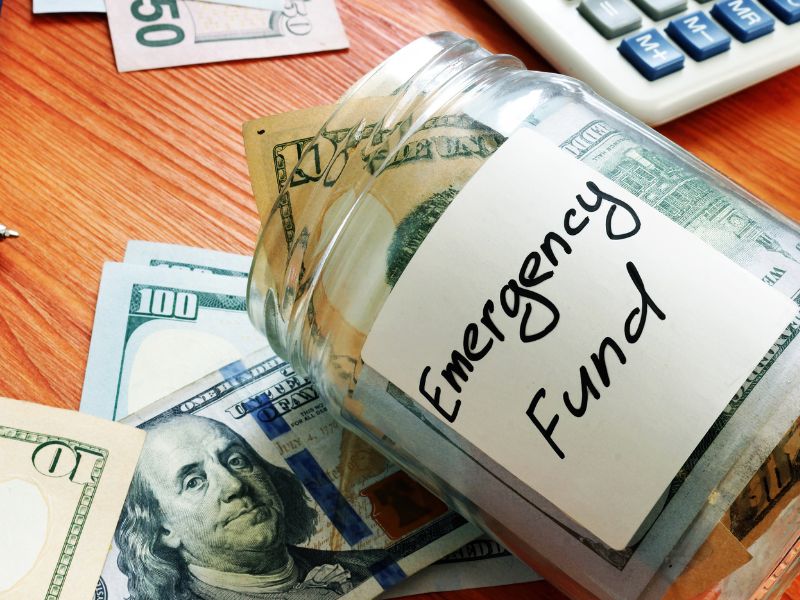7 Ways to Save Money on Your Finances

This post may contain affiliate links. At no cost to you, we earn a commission from qualifying purchases.
There is nothing truer than that old adage of “look after the pennies and the pounds will look after themselves” but how many of us do indeed, watch those pennies?
Do we really take enough time to track what is coming in and out of our bank account? Keeping track of what money comes in is easy, but not as important as knowing what and where that money is being spent on.
In this section, we look at making a few common sense changes and hopefully in time, you’ll be a more knowledgeable master of your finances like you never imagined.
1. Know your bank balance at all times
Keep an accurate note of your bank balance and avoid costly overdraft charges by agreeing on a safety limit with your bank before you need it. Try to stay in the black each month and avoid using your overdraft as often as you can.
Some banks will even send you an SMS message when you are approaching your balance limit.
If you must use your overdraft, understand the charges associated with it. Which? carried out a survey on the best bank accounts for arranged overdrafts and discovered charges for borrowing £500 for a week varied greatly. The best account (Starling) charged £1.34, while the worst (Bank of Scotland) charged £3.90.
In fact, most of the high street banks are way more expensive than their lesser-known counterparts such a First Direct, Starling, M&S, Tesco and Monzo.
Perhaps it’s time to start thinking about switching banks?
For most people, the best way to keep track of their bank balance is via a smartphone app. If you don’t want to use your phone, register online and view it on your laptop.
2. Pay off your credit card balance each month
Pay your credit card bill off before the interest charging period starts. A simple thing, but something nearly everyone forgets (or neglects) to do. Setting a reminder in your phone each month to do this will save you a small fortune each month.
If you’re the forgetful type or tend to have a lot on, set up a direct debit so the payment’s made automatically every month. Late payments incur charges of around £12 and can affect your credit rating. So avoid them as often as you can.
3. Transfer balances between credit cards
Transferring a balance from one credit card to another is commonplace these days. So, if you’re struggling to meet your repayments or you’re concerned about the amount of interest you’re paying, think about transferring your credit card balance to another company.
Banks and credit card companies always run special and promotional offers to get people to switch. The best at the time of writing this article is an M&S offer of 28 months at 0% interest. Find out more here. You can check to see if you’re likely to be accepted without affecting your credit score here.
Alternatively, check out the popular finance sites to see what offers are currently available.
Remember to always read the small print as there is likely to be a transactional charge for balance transfers. Even if there is a charge, it will most likely cost a lot less than the interest you would be paying if you keep your balance on the original card.
4. Use cash instead of your debit card
If you have difficulty keeping tabs on what you’re spending, withdraw your weekly spending budget in cash. Leave enough money in your bank account to pay the bills you know will be deducted automatically. Seeing the physical cash and how quickly it actually leaves your purse or wallet will change your spending habits for sure!
It’s so easy to wave your contactless card at a machine you often don’t realise how much money you’re spending (or wasting, in some cases). Using physical cash changes that and makes you appreciate where your money goes.
5. Save the small stuff
Start a loose change jar, especially if you adopt the previous suggestion of using cash instead of your debit card.
Back in the olden days, before debit cards, we’d throw all of our loose change (anything less than £1) into a huge Whisky jar. Over a year or so, we’d easily save up to £500. It was a nice little buffer of cash we could dip into at any time should we need it. And we always made sure we spent the money we saved on a weekend away or something special.
These days, it’s not so easy to do as everything is electronic because most of us don’t use cash. But some banks offer schemes based on this principle. For example, when you buy something on your TSB or Halifax debit card, the bank will round the amount up to the nearest pound and move the difference from your current account to a nominated savings account.
It’s surprising just how quickly loose change will start to turn into a handy lump of cash.
Encourage your children to save their pennies, that way they won’t be asking you for money all the time and they’ll gain a better appreciation of how much things cost when they have to dip into their own funds!
6. Save the money you waste on lottery tickets and scratchcards
Don’t waste your money on buying lottery tickets and scratchcards each week, instead set up an automatic transfer from your current bank account to put this amount into a tax-free savings account.
By the end of the year, you’ll have typically saved anything between £50 and £150, depending on how many tickets you stop buying. A guaranteed return that you can spend or reinvest and you won’t even miss the small monthly deductions.
7. Check your subscription services and cancel the ones you don’t use or need
We’ve all gotten so used to paying for services on a monthly basis, it’s easy to lose track of what we’re paying for and how much it costs. Paying a few pounds a month for a service like Netflix doesn’t seem so bad when compared to the annual cost, so we tend to lose focus.
At the time of writing, the basic Netflix package in the UK costs £5.99 per month, and the top package costs £11.99. They’re excellent value if you and your family enjoy watching films, TV shows and documentaries. But when you look at the cost per year, you might have a different opinion.
The basic package over a year costs £71.88 and the top package costs £143.88. Still good value if you enjoy Netflix. But what if you don’t? Or what if you don’t use it enough to justify the cost?
Now, look at the other stuff you pay for each month – gym membership, Sky, Amazon, NowTV, broadband, mobile phone, subscription boxes, YouTube premium, Spotify, Disney Plus. The list goes on and on.
So, take a look and what you’re using and what you can ditch and work out how much you could save over a year if you cancelled.





